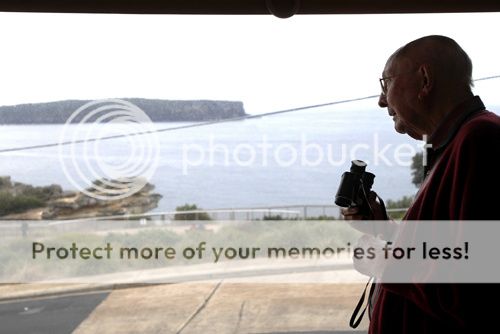
Don Ritchie and “the gap”
A great story:
In those bleak moments when the lost souls stood atop the cliff, wondering whether to jump, the sound of the wind and the waves was broken by a soft voice. “Why don’t you come and have a cup of tea?” the stranger would ask. And when they turned to him, his smile was often their salvation.
For almost 50 years, Don Ritchie has lived across the street from Australia’s most notorious suicide spot, a rocky cliff at the entrance to Sydney Harbour called The Gap. And in that time, the man widely regarded as a guardian angel has shepherded countless people away from the edge.
What some consider grim, Ritchie considers a gift. How wonderful, the former life insurance salesman says, to save so many. How wonderful to sell them life.
“You can’t just sit there and watch them,” says Ritchie, now 84, perched on his beloved green leather chair, from which he keeps a watchful eye on the cliff outside. “You gotta try and save them. It’s pretty simple.”
We find it so hokey, these days, the notion that one person smiling at another can make any sort of a difference to a moment, or a day, or a lifetime. Still…
A smile cannot, of course, save everyone; the motivations behind suicide are too varied. But simple kindness can be surprisingly effective. Mental health professionals tell the story of a note left behind by a man who jumped off San Francisco’s Golden Gate Bridge. If one person smiles at me on the way to the bridge, the man wrote, I will not jump.
By offering compassion, Ritchie helps those who are suicidal think beyond the terrible present moment, says psychiatrist Gordon Parker, executive director of the Black Dog Institute, a mood disorder research center that has supported the council’s efforts to improve safety at The Gap.
“They often don’t want to die, it’s more that they want the pain to go away,” Parker says. “So anyone that offers kindness or hope has the capacity to help a number of people.”
Kevin Hines wishes someone like Ritchie was there the day he jumped off the Golden Gate Bridge in 2000. For 40 agonizing minutes, the then-19-year-old paced the bridge, weeping, and hoping someone would ask him what was wrong. One tourist finally approached — but simply asked him to take her picture. Moments later, he jumped.
Hines, who suffers from bipolar disorder, was severely injured, but eventually recovered. Today he says if one person had shown they were not blind to his pain, he probably would never have jumped.
“A smile can go a long way — caring can go even further. And the fact that he offers them tea and he just listens, he’s really all they wanted,” Hines says. “He’s all a lot of suicidal people want.”
Don Ritchie is dealing with cancer, now, but is still good-humored. He and his wife, Moya, have lived lives made quietly heroic, by just giving a little bit of a damn about whoever is crossing their lines of vision. Read the whole remarkable story.











